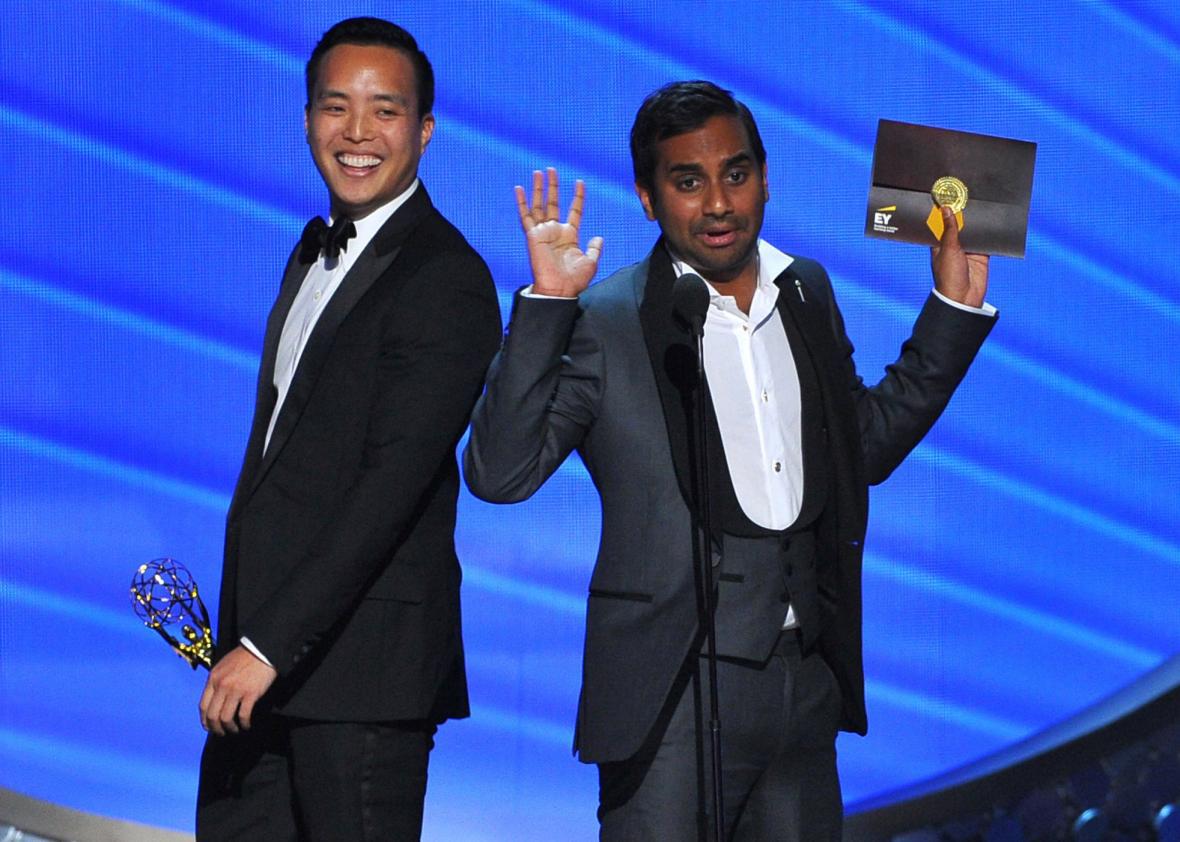Over the past few years, the Television Academy has—like all of us—struggled to keep up with the pressures of Peak TV. The Emmy Awards used to be decided by small judging panels, wherein a peer-selected voting group would watch the episodic submissions of a given category to determine the winner. This changed in 2015 when, in an effort to democratize the awards in accordance with TV’s rapid expansion, the Academy turned toward a popular vote. Under this new system, any member of the Television Academy could vote in any category, still encouraged to watch nominees’ submitted episodes but hardly required to do so. Each member would rank their choices from most to least worthy, with the candidate with the highest overall ballot count named the winner. Perhaps expectedly, the win total swelled last year for Game of Thrones—TV’s most popular show, and thus the most obvious beneficiary of a “popular vote”—while five of the eight major acting categories for continuing series yielded repeat victors.
Then the rules changed again: Ranked ballots were to be replaced by winner-take-all ballots—meaning a given voter would simply check off their choice, rather than rank each candidate from top to bottom—for 2016. This was intended as a corrective for the effects of 2015’s change, which at times made the Emmys look like a popularity contest. Essentially, an obscure performance on an underrated series would have a better chance of winning than before, assuming the fanbase was passionate enough. And a multi-nominated series in a given category would actually be less likely to win: Without the cushion of ranking, vote-splitting would theoretically have a far sharper effect.
If this all sounds a little wonky and technical, that’s because it is—but it also helps to explain why Sunday night’s Emmys got things so unusually right.
Let’s start with the first (surprising, deserving) winner of the night: Louie Anderson, Outstanding Supporting Actor in a Comedy Series for his brazen, affecting matriarichal turn in Baskets. Reigning winner Tony Hale was back in contention this year—and his show, Veep, still managed to win Outstanding Comedy Series—but for the first time he had a fellow castmember to beat in Matt Walsh. That, combined with the number of other viable candidates—Emmy magnet Andre Braugher, multi-winner Ty Burrell, and Key & Peele’s Keegan-Michael Key among them—was enough to render the category a toss-up. And Anderson, who had made a number of critics’ “should win” lists, stood out as the idiosyncratic choice. His show may not have been popular with Emmy voters overall. But a solid majority of those who watched him clearly considered him the most worthy—likely what allowed him to overtake the more traditional choices.
In Comedy Writing, Master of None managed to defeat Veep, which won the award in 2015 and had two scripts nominated this year. Master of None was certainly more popular with the Academy than Baskets, but it still had an uphill battle in a category that’s been reserved for Louis C.K. and Best Comedy champs including Veep, Modern Family, and 30 Rock for the past decade. The superb episode “Parents” won Aziz Ansari and Alan Yang their first Emmys, and more importantly gave them both (well, mostly Yang) a platform to discuss serious issues none of their co-nominees could’ve.
In another unusual trend, great actors on past-their-prime series pulled off some major upsets. Ben Mendelsohn was remarkable on the first season of Bloodline—for which he was nominated and lost in Drama Supporting Actor—but barely figured into the (mediocre) second. Yet it was for Season 2 that he won: Reigning category champ Peter Dinklage was joined for the first time by a co-star (Kit Harington) this year, which in all likelihood paved the way for Mendelsohn’s win. Similarly, critics and fans had called out the Emmys for years for not even nominating Tatiana Maslany; she won Sunday night on her second nomination—beating Robin Wright and Viola Davis, among others—despite Orphan Black’s diminished quality and buzz. While the timing felt a bit off, the new rules did manage to do (belated) justice for actors without much of a shot under the old system.
In this oversaturated, splintering TV market—in which audiences are disaggregating and distributors are desperately vying for attention—a popular vote still seems a bit antiquated. In their prime, both Mendelsohn and Maslany would have been competitive back when a small pool of voters had to watch each submitted episode and decide from there. And Game of Thrones still managed to sweep Drama Series, Writing, and Directing, despite the (overdue) presence of The Americans and other deserving shows. But with the Emmys at a newly important place in the ecosystem of TV content creation, the results of Sunday night’s show signify a crucial step forward. We’re coming off of a ceremony in which several first-time winners slid past awards favorites—where, in addition to those aforementioned triumphs, Sterling K. Brown beat Hugh Laurie, Rami Malek beat Kevin Spacey, Kate McKinnon beat Allison Janney, and long-great character actress Regina King managed to win her second Emmy in a row against the likes of Kathy Bates, Jean Smart, and Angela Bassett. We have no way of knowing how much the new rules helped. But given how different these Emmys felt from years past, it seems safe to say that they’re a move in the right direction.
